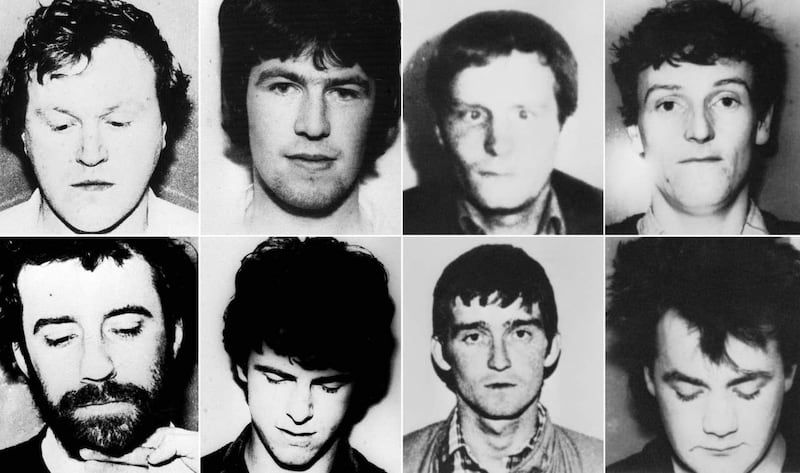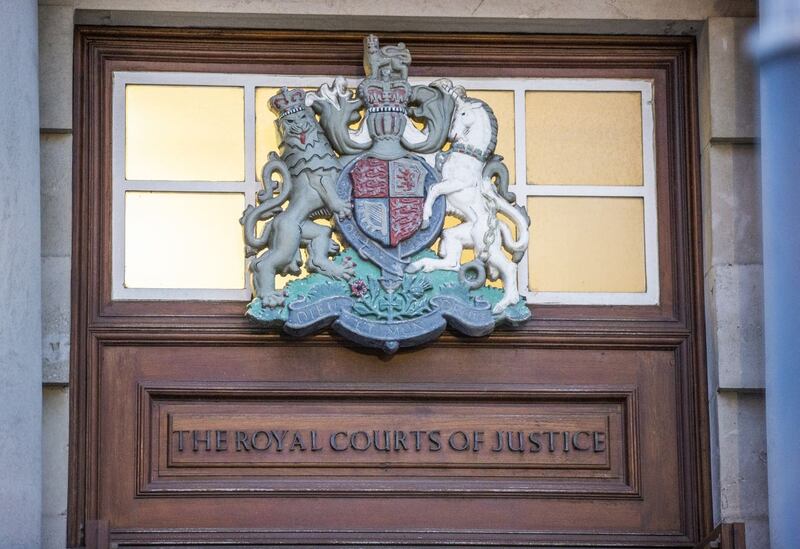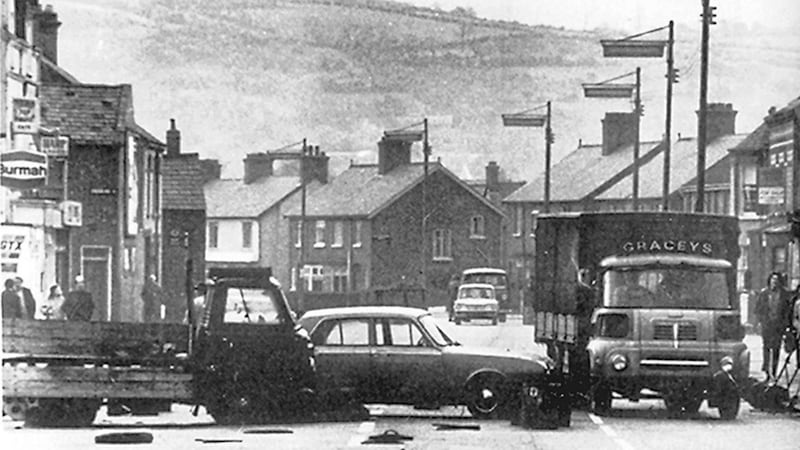A coroner has asked the police to produce a “warts and all” account of its funding problems to ensure Stormont politicians are fully aware of the pressures facing the organisation.
Mr Justice McAlinden said it was important the situation was exposed to “public gaze” so political leaders could potentially take action to address it.
The coroner was commenting after a barrister representing the PSNI conceded it could be several years before it was able to security-vet sensitive police files that are required for a legacy inquest into the deaths of eight IRA men and a civilian shot dead by soldiers in Co Armagh in 1987.
The nine men were shot by the SAS in Loughgall as an IRA unit carried out an attack on a police station.

Eight had been among the IRA unit, while civilian Anthony Hughes, who was travelling through the village in a car, was also shot dead.
At a preliminary hearing in Belfast, Mark Robinson KC, representing the PSNI, told the coroner that as the Loughgall case was not among those included in a three-year schedule for legacy inquests to proceed through the courts, the PSNI was not able to free up any resources to undertake the disclosure work.
Expressing concern at the inability of the police to provide any sort of indicative timeline for disclosure, Justice McAlinden told Mr Robinson to compile a written explanation setting out the resourcing challenges faced by the PSNI.
He asked the same of the Ministry of Defence, which is also required to disclose sensitive files held in its records.
Earlier this month, PSNI chief constable Simon Byrne warned that his organisation was facing a potentially “impossible” financial situation.
He said the force was looking at a funding gap of £141 million and that this could result in a total recruitment freeze, cuts to overtime, closing police stations and inquiry offices and grounding some of the police fleet.
The police are facing cutbacks as a result of a Stormont budget set by Northern Ireland Secretary Chris Heaton-Harris in the absence of devolved ministers at Stormont.

Justice McAlinden said he was acutely aware of the obligation to hold a human rights-compliant investigation into the Loughgall shootings.
But he said he also had to acknowledge the “real world”.
“I know how much the PSNI budget is actually basically under-resourced this year,” he said.
The coroner said there were “background discussions” going on between the Stormont parties and the Secretary of State in relation to the budget.
“In essence, we have a situation in this country whereby all the essential services are crying out for funding,” he said.
“The justice sector which includes prisons, probation, court service, civil and criminal legal aid, and the inquest process, are all seriously under-resourced at present.
“The under-resourcing in the PSNI obviously has a bearing in relation to the prioritisation of frontline police services and the investigation of historic wrongs and legacy inquest process. All these issues are presently burning and very concerning issues.”
Justice McAlinden said he wanted a “chapter and verse explanation” from the PSNI and MoD on the resourcing issues that are preventing swifter disclosure in the case.
“I want a warts and all explanation. It shouldn’t be a simple glib description of resourcing issues,” he said.
The coroner added: “When this detailed explanation is exposed to public gaze, and it will be, it will be for those that are in positions of power, those that are potentially in positions of power, moving back into the Assembly, to make the case for further resourcing for the various state agents to enable them to carry out their roles.
“All I can do at this stage is to ensure that the issues are fully ventilated and fully explored. So that those that are in a position to make changes and to provide resources for projects, to provide resources for tasks that need to be done, actually see the problem and actually do something about the problem.
“There is a limit to what the court can do at present other than expose the issues so that the public representatives can address those issues, if they see fit.”
Barrister for some of the bereaved relatives, Des Fahey KC, who was appearing on instruction from Phoenix Law solicitors, expressed concern at the prospect of lengthy hold-ups before the inquest is able to begin.
“It is cold comfort to those who I represent to be told that the resources that are available are being used in terms of the preparation of other inquests, rather than for their inquest,” he said.








